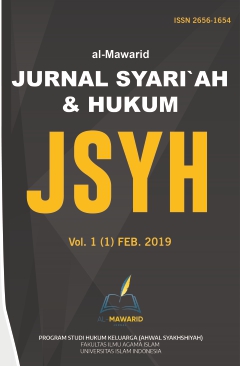Main Article Content
Abstract
This research highlights the basic rights of disabled, owing to the great importance of these rights to human life and his health, and the close relationship of those rights with the effectiveness of disabled and his ability to function and participate in society. Especially, with the widespread ignorance in some sectors about the rights of the disabled, or derogating him, his personality, and wasting his dignity by mocking him and exploiting his weakness and silliness. The study in this research revolves around the basic rights of disabled as well as the preventive aspect to reduce and avoid disability. So, the research firstly clarifies the basic rights and their contents, such as the right to life, dignity, equality, justice, education, work and privacy. Secondly, it discusses the health rights from the aspect of prevention and the care of Islam about the therapeutic medicine. The inductive and analytical methods are used in the research to search for the evidence in the jurisprudential references on the concern of Islam about the therapeutic medicine.
The most important outcome of this research is that: Islam preserves the humanity and dignity for the disabled and prohibits any kind of aggression or encroachment on them, in order for them to live in a way that makes them integrate with others in the society without feeling humiliation or disgraced. Islamic Shariah also guides us to prevent diseases and disabilities, and to preserve the soul and body. The research axes include four topicsArticle Details
- Authors retain copyright and grant the journal right of first publication with the work simultaneously licensed under a Creative Commons Attribution License that allows others to share the work with an acknowledgement of the work's authorship and initial publication in this journal.
- Authors are able to enter into separate, additional contractual arrangements for the non-exclusive distribution of the journal's published version of the work (e.g., post it to an institutional repository or publish it in a book), with an acknowledgement of its initial publication in this journal.
- Authors are permitted and encouraged to post their work online (e.g., in institutional repositories or on their website) prior to and during the submission process, as it can lead to productive exchanges, as well as earlier and greater citation of published work.
